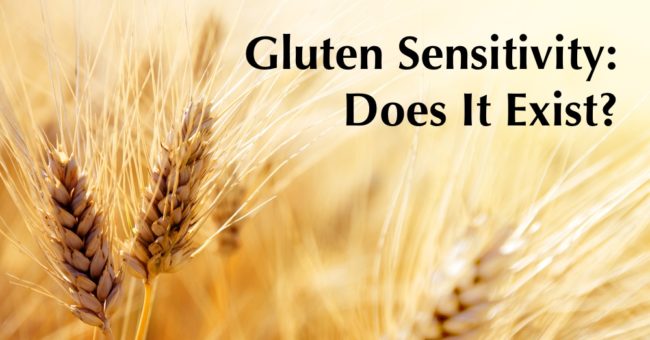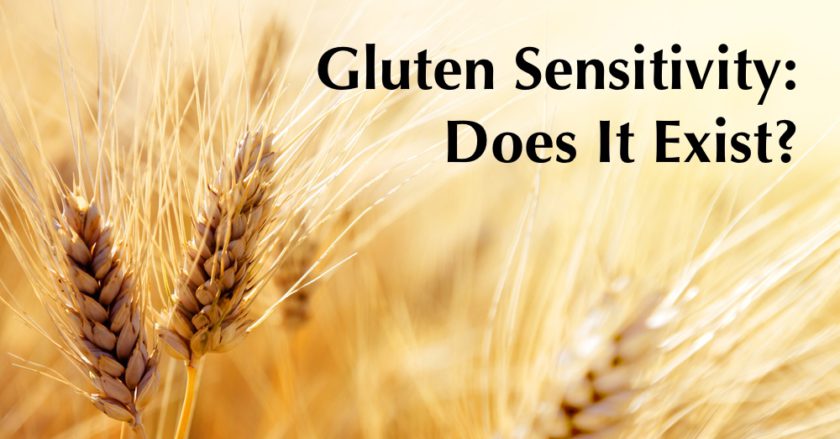 Whenever I encountered somebody who explained that they are on a Gluten free diet (and it is common) then I have always assumed that they had a specific diagnosed reaction to Gluten and had adopted the diet for medical reasons. It turns out that this is not strictly the case for many people.
Whenever I encountered somebody who explained that they are on a Gluten free diet (and it is common) then I have always assumed that they had a specific diagnosed reaction to Gluten and had adopted the diet for medical reasons. It turns out that this is not strictly the case for many people.
There is a Real Medical Condition
Celiac disease is quite real and diagnosable.
In essence, Gluten is a blend of two proteins. People with a diagnosed case of Celiac disease have an autoimmune reaction to one of these and that is why they must avoid Gluten. Even a tiny amount can cause severe symptoms.
Key points
- Roughly about 1% of the population has this
- If you have this, then you will know.
- There is exactly one treatment – a strict lifelong gluten-free diet
Non-celiac Gluten Sensitivity
There is a bit of a modern fad regarding what is known as non-celiac Gluten Sensitivity. Supposedly the symptoms of some have been claimed to be a reaction to Gluten but this has been a very problematic claim. Such people have no evidence of any antibodies to gliadin (the Gluten protein that Celiac’s react to) nor do they meet the specific criteria for Celiac disease in any way.
There is no pathology here.
Testing it with a re-challenge study
In simple terms a test subject is challenged with either gluten or a placebo. The gluten is then removed. Then later they are re-challenged with gluten or a placebo again. Obviously the test subject will not know when the switch is made and so if Gluten is indeed the cause of the symptoms, the the removal and then re-challenging should clearly demonstrate a causal relationship.
There has been a review of such studies for Non-Celiac Gluten Sensitivity
This new systematic review has just been published …
Re-challenge Studies in Non-celiac Gluten Sensitivity: A Systematic Review and Meta-Analysis.
They conclude …
The prevalence of NCGS after gluten re-challenge is low, and the percentage of relapse after a gluten or a placebo challenge is similar.
(They refer to Non-Celiac Gluten Sensitivity as NCGS in the above)
In essence, the best available scientific evidence would appear to conclude that Non-Celiac Gluten Sensitivity most probably is not the actual cause of the symptoms some complain about and then attribute to Gluten. Remember that we are talking about literally millions who adopt a gluten free died in the belief that they do have such a sensitivity. What this study does not establish is that such sensitivity does not exist for a small handful, but rather that for most of them, the vast majority, gluten is not the root cause of their problem.
But what about the Symptoms?
Obviously the symptoms that people report are real, we need not doubt that. What we should now be skeptical about is that Gluten causes the reported symptoms for the vast majority of cases.
Also obviously going on a gluten free diet will greatly impact your diet, and so it might indeed alleviate symptoms. This is not because Gluten has been avoided, but rather because an entire diet has been radically altered. If you are on a gluten free diet then you have eliminated a major food category.
If you do not have a specific diagnosed medical condition, but instead you are simply giving gluten-free a go to see what happens, then it is also worth understanding that there are associated risks …
- You risk a deficiency in iron and folic acid.
- You also have a higher risk of type-II diabetes (according to a recent study).
People with real symptoms are self-diagnosing with an illness they do not have and “treating” it with an unnecessary intervention that brings real risks instead of identifying the true cause of their symptoms. That’s a scary thought, and yet literally millions of people are doing this.
Further Insights
Dr Steven Novella, an academic clinical neurologist at the Yale University School of Medicine, writes about this newly published systematic review on the Science Based Medicine website …
Risks of a Gluten-Free Diet
Having a restricted or narrow diet is always tricky, and runs the risk that you will be getting too little of some key nutrients and may be getting exposed to too much of others. This is the key risk of so-called “fad” diets, because they are often premised on a simplistic notion that specific foods or categories of foods are inherently bad and should be avoided. Therefore any diet which essentially consists of avoiding certain foods or heavily relying on others is likely to take you away from an optimal diet, and therefore be a net negative for your health.
The recent gluten-free fad is no exception.
Making Gluten the culprit can lead you down the wrong path and stop you finding a real solution …
For many people they have settled on gluten sensitivity to explain real symptoms they may be having. In this case they may be missing the real cause of their symptoms. There is therefore an opportunity cost of making a false diagnosis.
One further impact
Your fad diet is not just about you.
The cries of wolf from 33% of the population put the 1% of population with real issues in peril. As one commenter pointed out …
I have celiac disease, and there are people with genuine life-threatening allergies. When people like me go into a restaurant,
we’re at the whim of a waiter who may have just served twenty fussy assholes from the Food Babe Army who think that gluten causes your spleen to turn radioactive, or whatever lie she’s using to sell organic kale dipped in yak’s butter this week. So when I tell a server that I can’t do gluten, that waiter might roll their eyes at me because of people like Vani Hari.
